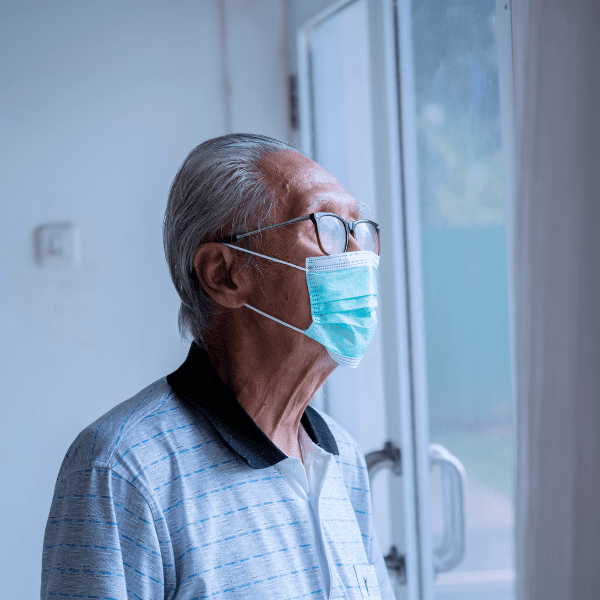The ongoing COVID-19 outbreaks in NSW and the world has presented many barriers when it comes to physical and emotional connection with family, friends and the community. Adapting to these lifestyle changes is challenging for all of us, however it can be particularly difficult for people living with a disability and/or mental illness. Fortunately, there are a number of things we can do to look after our own mental health, and to help others who may need some extra support along the way.
Check in with your friends, family, or social network. You might also like to connect with new communities and participate in social groups.
Talk to people you trust about how you're feeling - social contact is important. If your movements are restricted, keep in regular contact with people close to you by telephone and online. Using technology can be difficult for some, so below we have included ideas on how to connect both online and offline.
How to use technology to connect:
- Video calling - Most computers and phones can both make and receive video calls. If you haven’t tried video calling before, there are many guides to be found online, or you might like to ask a friend for help.
- Online groups - Starting an online group where people can chat or leave messages can help you stay connected at any time.
- Online classes - Many organisations are offering online cultural, exercise and art classes. You could take an exercise class, stretch out with some yoga, feel the beat in a dance class or learn how to paint through an online art studio.
- Virtual choirs and bands - Through video chat, some people have taken the pandemic as an opportunity to move their choirs and music groups online. Find one that’s set up or start your own.
- Digital games - While sitting around a table with friends playing board games isn’t an option right now, you can have a similar experience playing games online. Our favourite is Scrabble!
- Social media - Check in with others, post a nice photo, or watch a funny or inspirational video. Do keep in mind to make an effort to switch off your screens once in a while.
Offline ideas for connecting from a distance:
- Write a letter or postcard - Write to someone close to you, write to someone you haven’t talked to in a while, or pop a postcard in the neighbours letterbox. Receiving mail is a rare treat these days, and you never know, they just might write back.
- Share a book or care package - Drop books or care packages into the letterboxes of neighbours and friends. Bonus points if you accompany them with a personalised note, and encourage them to pass the favour along to someone they know.
- Good old fashioned conversation - Whether it’s with someone in your household over the kitchen table, or a friend on the phone, nothing beats a good chat. We’ve listed a number of different ways to connect above, but sometimes a simple conversation feels the best.
Access or investigate NDIS if this applies to you.
The NDIS website has some great COVID-19 resources for participants www.ndis.gov.au/coronavirus. If you are an NDIS participant, check in with your Support Coordinator - they are here to help guide you through the NDIS and connect you to the services you need.
Check in with your GP or psychologist. Consider a mental health plan if you are feeling isolated.
The impacts of the COVID-19 outbreak, physical distancing and isolation can make us feel anxious, stressed and worried. Make an appointment with your GP or psychologist if you have one, and look to the supports around you as we tackle these challenges together.
Remember the free supports available to you.
- Lifeline- 13 11 14
- Beyond Blue- 1300 22 4636
- Kids Helpline- 1800 55 1800
There are a number of additional support services listed on our website www.hunterprimarycare.com.au/support-services
This blog was written by Kurt Walker- Team Leader Psychosocial and NDIS from our Mental Health Care Coordination Team.
